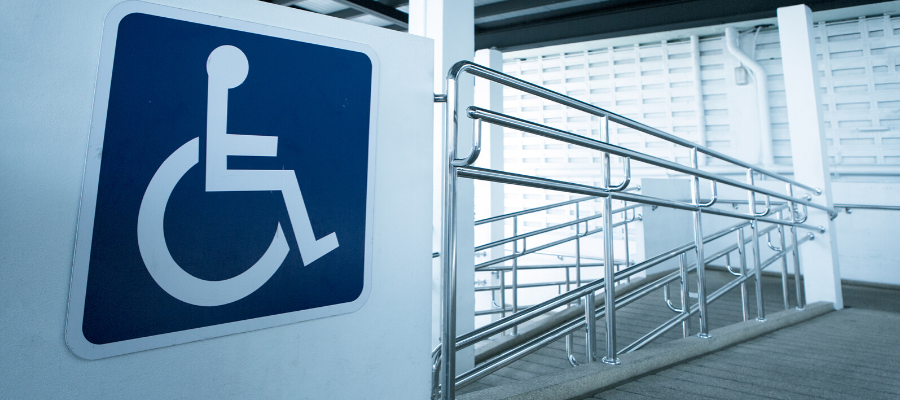Paternalism and Health
Jul 13, 2004Paternalism and Health: Some diseases such as Alzheimer's inhibit our abilities to make decisions and lessen our quality of life.

The Americans with Disabilities Act recognizes that people with disabilities are often prevented from leading productive and satisfying lives because social, school and work environments are often thoughtlessly and unnecessarily designed with only people with the standard set of abilities in mind. In many cases "reasonable accommodation" to the ways people with disabilities need to do things is required. What is reasonable? Elevators in schools? Probably. How about elevators in the Grand Canyon? What is a disability? Blindness? Certainly. How about obesity? Where do we draw lines, and on what principles? John and Ken test their abilities with Anita Silvers from San Francisco State University, author of Disability, Difference, Discrimination: Perspectives on Justice in Bioethics and Public Policy.
Should we use the phrase “differently abled” instead of “disabled”? Is a disability just an interface problem? Ken introduces Anita Silvers, professor at San Francisco State University. Silvers claims that ‘disability” is a social convention, a politicized term. It has been used historically to remove certain people from the workplace. Is obesity a disability? Silvers wants to frame the discussion in terms of disability discrimination rather than necessary and sufficient conditions on disabilities.
Is there a nonsocial component to the concept of disability? Silvers says that there used to be an idea of “bad biology” that was used against people with disabilities. What is the biological difference between a disease and a disability? John goes over three responses to disability that he has heard in the past: view it as a deficiency, view it as ennobling, and view it as a mere difference. Where does reasonable accommodation end and social hijacking begin? Silvers starts with people who have anomalous biology. Society may have to change certain practices to accommodate disabled people. How much accommodation is reasonable? Should society change to accommodate all disabled people?
Is it fair to compare blindness to deafness or obesity? Each of those is very different from the others. Are learning disabilities in the same ballpark as, say, deafness? Who should bear the financial burden for accommodating disabled people? Silvers says that disabled people must first show that they count as disabled then show that their disability needs accommodation.
Comments (6)
jessicavi
Tuesday, December 5, 2023 -- 1:25 AM
Retro games have the best andRetro games have the best and most recent free classic games. You can play retro games online for free, and they can help you unwind.
orabelle
Monday, February 5, 2024 -- 2:05 AM
Calculate your exact GPACalculate your exact GPA using our free online GPA Calculator
arethacary
Tuesday, June 25, 2024 -- 12:10 AM
Sharing about DISABILITY isSharing about DISABILITY is very useful and meaningful Holiday
shiateacher
Friday, March 14, 2025 -- 2:39 PM
very good topic I appreciatevery good topic I appreciate your vision and Shia Quran Teacher, an online Quran Shia teachers’ organization, is for people who are living abroad. Online Shia Quran teacher is surely the best place for you to Learn Holy Quran.
brawlstars3
Thursday, March 20, 2025 -- 3:00 PM
Brawl Stars is a multiplayerBrawl Stars is a multiplayer action game where you battle opponents with different brawlers. Play solo or team up with friends to defeat enemies and earn rewards in exciting game modes.
JamesReed
Saturday, April 5, 2025 -- 1:40 PM
How far should society go inHow far should society go in accommodating people with disabilities, and who should bear the costs of these accommodations? Silvers suggests that instead of focusing solely on biological differences, we should focus on disability discrimination and the ways in which societal systems fail to provide equitable opportunities for all individuals, regardless of their physical or cognitive differences. The Native Springs Top Trending News is everywhere right now. Be in the know!